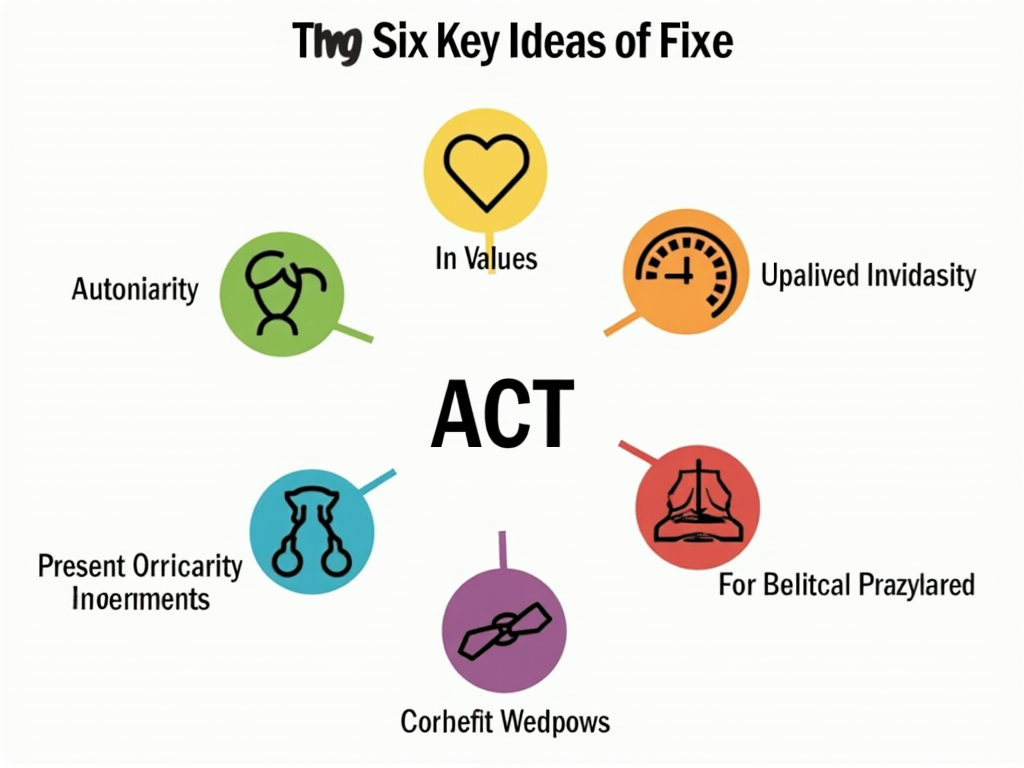Overview
Stress is a common challenge, especially when it affects your whole family. Acceptance and Commitment Therapy (ACT) is a unique way to handle stress by accepting it instead of fighting it. This article explains how ACT, a type of behavioral therapy, can help you and your loved ones manage stress and improve family wellness.
What is Acceptance and Commitment Therapy?
Acceptance and Commitment Therapy (ACT) is a form of behavioral therapy that teaches you to accept your thoughts and feelings rather than trying to change them. It started in the 1980s and is based on a simple idea: fighting tough emotions often makes them worse. With ACT, you learn to let stress be there without letting it take over.
This approach works well for stress management because it builds something called psychological flexibility. That means you can adapt to hard times and still focus on what’s important—like your family or your health. ACT isn’t about getting rid of stress; it’s about living well even when stress shows up.

How ACT Stands Out
Most therapies, like cognitive-behavioral therapy (CBT), try to fix negative thoughts. ACT is different—it’s about accepting those thoughts instead. You don’t have to push stress away; you learn to live with it in a healthier way. ACT also uses mindfulness, which helps you stay in the moment even when things feel tough.
For families, ACT fits perfectly into family therapy or daily life. It’s a tool for family wellness, helping everyone deal with stress together. Imagine a family facing a big change—like moving to a new city. ACT can help them stay calm and supportive instead of stressed and distant.
The Six Key Ideas in ACT
ACT has six main steps that help you handle stress. Here’s what they are and how they work:
- Acceptance: Let stress happen without fighting it. This stops you from wasting energy on resistance.
- Cognitive Defusion: See your thoughts as just thoughts, not facts. Say “I’m noticing I feel stressed” instead of “I’m a mess.”
- Being Present: Focus on now, not yesterday or tomorrow. It keeps stress from growing bigger in your mind.
- Self as Context: Remember you’re more than your stress. It’s just one part of your life, not all of you.
- Values: Decide what matters most—like family or kindness—and let that guide you.
- Committed Action: Take small steps toward what you care about, even when stressed.
These ideas build a strong foundation for managing stress every day.

Using ACT with Your Family
Stress hits families hard, whether it’s a busy schedule or a bigger problem like a sick relative. Family therapy with ACT can bring everyone closer. It teaches you to accept feelings, stay present, and focus on shared goals.
Take my friend’s family as an example. When her mom lost her job, everyone felt the pressure. They started using ACT by sitting together each night, talking about their feelings without trying to fix them right away. They focused on their value of sticking together, and it made a huge difference. They felt stronger as a team.
Why ACT Works for Stress
Studies back up ACT’s power. Research in the Journal of Consulting and Clinical Psychology showed it cuts stress and worry better than some older methods. Here’s why it’s so good:
| Benefit | How It Helps |
|---|---|
| More Flexibility | You adapt to stress without breaking. |
| Better Emotion Control | You handle feelings calmly. |
| Stronger Coping Skills | You find ways to keep going. |
| Closer Family Ties | You support each other better. |
Want proof? Check out this study for more details.

Easy ACT Tips to Try
You don’t need a therapist to start with ACT. Here are some ideas to try at home:
- Mindfulness Moment: Sit for 5 minutes and focus on your breathing. If your mind drifts, bring it back gently.
- Values Check: List three things you care about (like family or fun) and do one small thing for each today.
- Thought Trick: When stress hits, say, “I’m noticing this thought.” It makes it less heavy.
- Body Scan: Feel where stress sits in your body—like tight shoulders—and just let it be there.
Try these with your family. Maybe do a quick breathing break together after dinner. It’s simple but powerful.
ACT and Family Wellness
Family wellness isn’t just about eating right or exercising—it’s about feeling good together. ACT helps by:
- Letting everyone share their feelings openly.
- Teaching you to listen without jumping to solutions.
- Keeping your family focused on what you value most.
When my cousin’s family hit a rough patch, they used ACT to stay connected. They’d check in daily, asking, “What’s one thing we can do to feel like us?” It kept them grounded and close, even when life got messy.

Wrapping It Up
Acceptance and Commitment Therapy for stress management is a game-changer. It’s not about erasing stress but living well with it. Through acceptance, mindfulness, and small actions, ACT helps you and your family stay strong. It’s perfect for family therapy or just daily life, building a happier, more resilient home. Check out the readings below to dig deeper.
Discuss Here